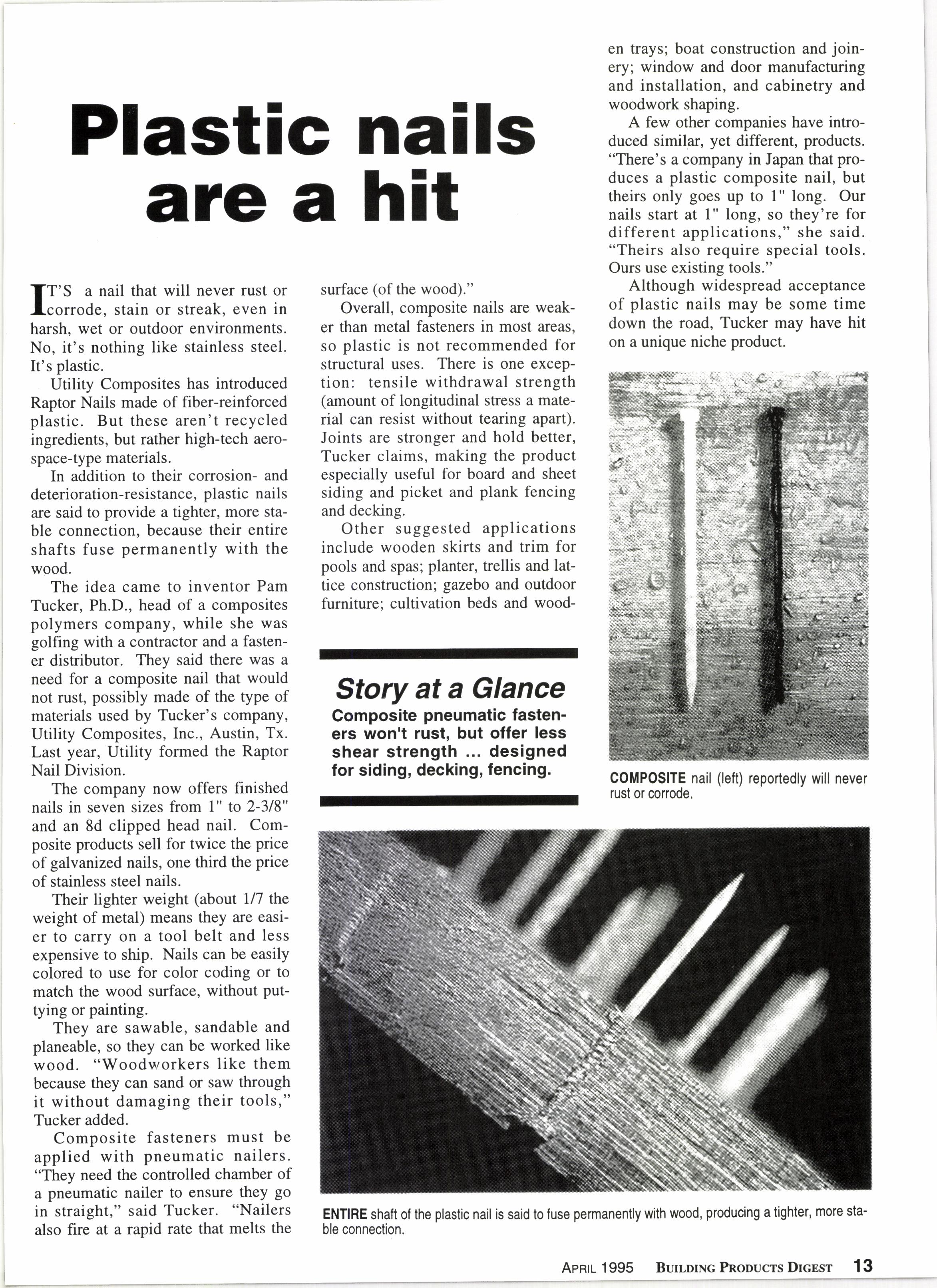
2 minute read
Plastic nails are a hit
fT'S a nail that will never rust or lcorrode. stain or streak, even in harsh, wet or outdoor environments. No, it's nothing like stainless steel. It's plastic.
Utility Composites has introduced Raptor Nails made of fiber-reinforced plastic. But these aren't recycled ingredients, but rather high-tech aerospace-type materials.
In addition to their corrosion- and deterioration-resistance, plastic nails are said to provide a tighter, more stable connection, because their entire shafts fuse permanently with the wood.
The idea came to inventor Pam Tucker, Ph.D., head of a composites polymers company, while she was golfing with a contractor and a fastener distributor. They said there was a need for a composite nail that would not rust, possibly made of the type of materials used by Tucker's company, Utility Composites, Inc., Austin, Tx. Last year, Utility formed the Raptor Nail Division.
The company now offers finished nails in seven sizes from 1" to 2-318" and an 8d clipped head nail. Composite products sell for twice the price ofgalvanized nails, one third the price of stainless steel nails.
Their lighter weight (about 1/7 the weight of metal) means they are easier to carry on a tool belt and less expensive to ship. Nails can be easily colored to use for color coding or to match the wood surface, without puttying or painting.
They are sawable, sandable and planeable, so they can be worked like wood. "Woodworkers like them because they can sand or saw through it without damaging their tools," Tucker added.
Composite fasteners must be applied with pneumatic nailers. "They need the controlled chamber of a pneumatic nailer to ensure they go in straight," said Tucker. "Nailers also fire at a rapid rate that melts the surface (of the wood)."
Overall, composite nails are weaker than metal fasteners in most areas, so plastic is not recommended for structural uses. There is one exception: tensile withdrawal strength (amount of longitudinal stress a material can resist without tearing apart). Joints are stronger and hold better, Tucker claims, making the product especially useful for board and sheet siding and picket and plank fencing and decking.
Other suggested applications include wooden skirts and trim for pools and spas; planter, trellis and lattice construction; gazebo and outdoor furniture: cultivation beds and wood-
Story at a Glance
Composite pneumatic fasteners won't rust, but offer less shear strength ... designed for siding, decking, fencing.
en trays; boat construction and joinery; window and door manufacturing and installation, and cabinetry and woodwork shaping.
A few other companies have introduced similar, yet different, products. "There's a company in Japan that produces a plastic composite nail, but theirs only goes up to 1" long. Our nails start at l" long, so they're for different applications," she said. "Theirs also require special tools. Ours use existing tools."
Although widespread acceptance of plastic nails may be some time down the road, Tucker may have hit on a unique niche product.










